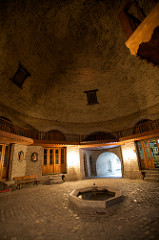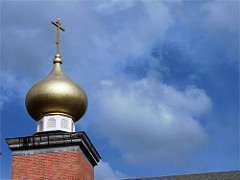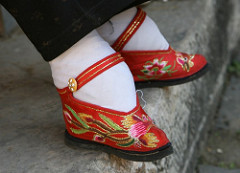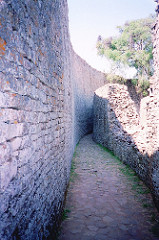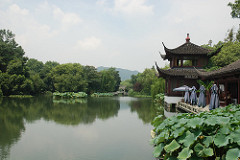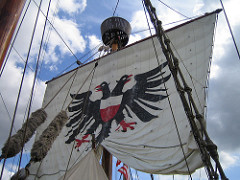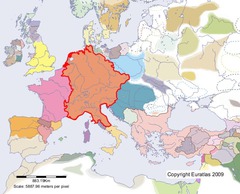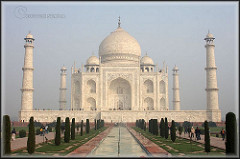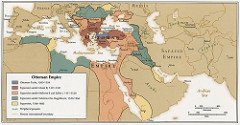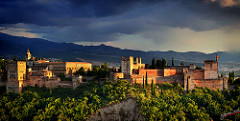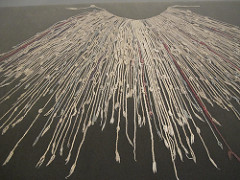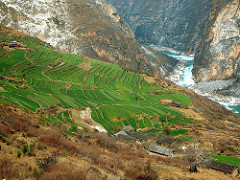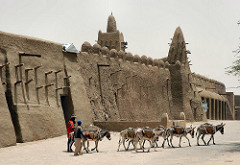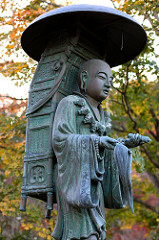Black Death
one of the most devastating pandemics in human history; death toll estimated from 75 to 200 million people; peaked in Europe in from 1348 to 1350 CE; originated in central Asia, where it then travelled along the Silk Road, then carried by rat fleas living on black rats which were spread by merchant ships
bubonic plague
the most common form of the Black Death; spread by black rats infested with fleas carrying a deadly bacterium; October 1347: Italian merchants brought the plague with them from Kaffa to the island of Sicily; 1347: plague had spread to southern Italy and southern France; 1348-1349: the plague spread through France, the Low Countries, and Germany; 1349: plague reaches England, northern Europe and Scandinavia; 1351: Eastern Europe and Russia were affected
bushido
"the way of the warrior"; the strict code by which Japanese samurai were supposed to live; the culture and values of the Japanese samurai; expressed the highest ideals of political leadership and personal conduct; absorbed Confucian and Buddhist values as well as Shinto tradition
Byzantine Empire
former Eastern Roman Empire; lasted from the 8th century until 1453; both a Greek and a Christian state; ruler ruled through caesaropapism; controlled Greece, much of the Balkans, and Anatolia; after 1085: lost territory due to Western European powers, Catholic Crusaders, and Turkic Muslim invaders; empire falls to the Ottomans in 1453
caesaropapism
the emperor assumed the role of the head of state and the head of the church; emperor appointed the patriarch, or leader, of the Orthodox Church; emperor occasionally made decisions about doctrine; emperor called church councils into session; emperor treated the church as a government department
caliphate
the office of the caliph
caravanserai
a roadside inn where travelers could rest and recover from the day's journey; supported the flow of commerce, information, and people across the network of trade routes covering Asia, North Africa, and southeastern Europe, especially along the Silk Road; frequently found along the Persian Empire's Royal Road
Champa rice
a quick-maturing, drought resistant rice that can allow two harvests, of sixty days each in one growing season; originally introduced into Champa from Vietnam; later sent to China as a tribute gift from the Champa state during the reign of Emperor Zhenzong of the Song Dynasty
Chan Buddhism
a school of Mahayana Buddhism developed in China beginning in the 6th Century C.E.; became dominant during the Tang and Song dynasties
chinampa
a method of ancient Mesoamerican agriculture which used small, rectangular areas of fertile arable land to grow crops on the shallow lake beds in the Valley of Mexico; known as "floating gardens"; artificial islands
chivalry
code of conduct developed in Europe during the 1100's for knights; stated that knights had to fight for three masters: God, their lord, and his chosen lady (wife); were required to protect the weak and poor (most knights disobeyed this rule); set high standards, few knights met them
Christendom
the Christian world; refers to the medieval and early modern period, during which the Christian world represented a geopolitical power
compass
a Chinese navigational invention which determined heading
Crusades
a series of "holy wars" that began in 1095; undertaken at God's command and authorized by the pope; participants swore a vow and in return offered an indulgence; drew on Christian piety and the warrior values of the elite; aimed at returning the Holy Land from Islamic control to Christendom; temporarily carved out 4 small Christian states, the last of which recaptured by 1291; very cruel in their conquests; brought Spain, Sicily, and the Baltic region permanently into Western Christendom; popes strengthen position; created larger interaction with other societies
Dar al-Islam
"the house of Islam"; a term used to refer to those countries where Muslims can practice their religion freely
Eastern Orthodox
form of Christianity mainly practiced in Eastern Europe and the Balkans; split from authority of the pope during the Great Schism of 1054
feudalism
a series of contractual relationships between individuals, backed up by various ethical and legal doctrines; highly fragmented and decentralized; consisted of isolated, independent, and self-sufficient estates/manors; power exercised by a warrior elite of landowning lords; lesser lords and knights swore allegiance to greater lords or kings and became their vassals; serfdom arises from Roman-style slavery
fief
a central element of feudalism; consisted of property or rights granted by a lord to a vassal, in exchange for feudal alliance and service
foot binding
Chinese practice which began among dancers and courtesans in the 10th or 11th Centuries; involved the tight wrapping of young girls' feet, usually breaking the bones of their feet and causing immense pain; spread among the elite families during the Song Dynasty and later became more widespread; associated with new images of female beauty and eroticism that emphasized small size, frailty, and deference; served to keep women restricted to the "inner quarters"; many mothers imposed this tradition on their daughters to enhance marriage prospects and assist them in competing with concubines for the attention of their husbands; became a rite of passage and source of pride; served to distinguish Chinese women from their "barbarian" counterparts and elite women from commoners and peasants
Genghis Khan
lived from c. 1160 to 1227; the founder of the Mongol Empire; came to power by uniting many of the nomadic tribes of the Asian steppes
Great Zimbabwe
prosperous African city established by the descendants of a Bantu group; capital of Zimbabwe; located along the Zambezi River with a population of 10,000 residents; surrounded by stone walls; abandoned in the mid-15th Century, possibly due to overgrazing or natural disasters such as droughts and crop failures
griot
a special class of African storytellers who transmitted history orally
guild
an association of artisans or merchants who control the practice of their practice
hajj
the term for the Islamic pilgrimage to Mecca
Hangzhou
Chinese city located at southern end of Grand Canal; center for trade, had ten marketplaces; visited by Marco Polo; according to Marco Polo there were 12,000 bridges in Hangzhou; all of the roads, including the highways, were paved with stone or brick
Hanseatic League
a commercial and defensive confederation of merchant guilds and their market towns that dominated trade along the coast of Northern Europe; stretched from the Baltic to the North Sea and inland; capital at Lübeck; established in 1358
Holy Roman Empire
title given by the pope to an empire which sought to recreate the unity of the Roman Empire; given to Otto I of Saxony and was largely limited to Germany until it broke down into several quarreling principalities
Ibn Battuta
Arab traveller who lived from 1304 to 1368; born in Morocco; travelled to Spain, Anatolia, West and East Africa, Arabia, Iraq, Persia, Central and Southeast Asia, India, and China; travelled as a pilgrim, religious seeker, a legal scholar, and frequently was accompanied by Muslim merchants; almost all of his travels occurred within the Islamic Empire; often highly critical of the quality of Islamic observance in the frontier regions of the faith
iconoclasm
the deliberate destruction within a culture of the culture's own religious icons and other symbols or monuments, usually for religious or political motives; a frequent component of major political or religious changes
Indian Ocean trade network
maritime trade network centered around the Indian Ocean
khan
Mongol and Central Asian title for a sovereign or military ruler
Khitan people
a nomadic Mongol people originally from Mongolia and Manchuria which established the Liao Dynasty from 907 to 1125
Jurchen people
also known as the Jin people; a Tungusic people who inhabited Manchuria and established the Jin Dynasty, which lasted from 1115 to 1234
Kievan Rus
also known as the Principality of Kiev; established by a viking named Oleg in the early 10th Century; included land between the Baltic and Black Seas and the Danube and Volga Rivers; adopted Eastern Orthodox Christianity in 988; collapses in 1169 following a series of civil wars and invasions
kowtow
Chinese practice; a series of ritual bowings and prostrations; used in China's "tribute system"
manorialism
also known as Manorial System; a system of social relations between lords and serfs in the Middle Ages; the political, economic, and social system by which peasants of medieval Europe were made dependent on their land and lord; used for organizing the estates of aristocracy and the clergy in the Middle Ages; made feudalism possible; found in France, Germany, Italy, Spain, and England, but also in varying degrees, in the Byzantine Empire, Russia, Japan, and elsewhere; lasted from 8th to 13th Centuries in western Europe; emerged in the late Roman Empire, during times of civil disorders, weakened or corrupt government, and barbarian invasions in 5th and 6th centuries
Mansa Musa
lived from circa 1280 to circa 1337; tenth ruler of the Mali Empire; was a devout Muslim and went on a famous pilgrimage to Mecca in 1324
Marco Polo
lived from 1254 to 1324; born and raised in Venice, Italy; at age 17, accompanied his father and an uncle on a journey that eventually brought them to Mongol China in 1275; lived in China for the next 17 years and was employed in minor administrative positions by Khublai Khan; wrote a novel documenting his travels following his return from China in 1295; often debated if he even went to China at all, since he omitted any mention of prominent features of Chinese life
Melaka
also spelled Malacca; a small town on the western coast of the Malay Peninsula; 1400s: became the major trading port in the region and a chief rival to Majapahit; Muslim traders and the Muslim faith moved into the interior of the peninsula; eventually, almost the entire population of the region was converted to Islam
monasticism
a religious way of life that involves renouncing worldly pursuits to fully devote one's self to spiritual work; used in Christianity, Buddhism, Hinduism, and Jainism
monsoon
a seasonal wind pattern in southern Asia that blows warm, moist air from the southwest during the summer, bringing heavy rains, and cold, dry air from the northeast during the winter
Mughal Empire
empire which lasted from 1526 to 1707 and provided a rare period of relative unity in the Indian subcontinent; a product of Central Asian warriors (Muslim in religion and Turkic in culture) who claimed descent from Chinggis Khan and Timur; emperors exercised fragile control over a diverse and fragmented region; central division was religious (ruling dynasty and 20% of population were Muslims)
Neoconfucianism
Chinese philosophy influenced by Confucianism; originated in the Tang Dynasty, and became prominent during the Song and Ming dynasties
Ottoman Empire
empire which lasted from c. 1300 to the early 1900's; originated in northwestern Anatolia; transformed from a small frontier principality to a powerful empire; created by one of many Turkic groups which settled in Anatolia; at its height encompassed the Anatolian peninsula, much of the Middle East, coastal North Africa, the lands around the Black Sea, and Eastern Europe
Muslim Iberia
called al-Andalus; refers to a period of time in which the Iberian peninsula was conquered and held by Muslim forces from the 8th Century to the 15th Century
papacy
the office or authority of the pope
quipu
knotted cords that served as an accounting device during the Inca Empire; used to record births, deaths, marriages, and other population data
Safavid Empire
empire which congealed in the late 15th and early 16th Centuries; Turkic in descent; emerged from a Sufi religious order founded by Safi-al-Din; forcibly imposed Shia Islam as the official religion; came to define the unique identity of Persian culture; collapsed in the 1730's
sakk
the Arabic name for a financial certificate, but commonly refers to the Islamic equivalent of bonds; structured to comply with the Islamic law and its investment principles, which prohibits the charging, or paying of interest
samurai
"those who serve"; Japanese warriors whose purpose was to protect the security and property of their employers; lived by strict code, known as Bushido
serfdom
system of labor in which serfs were bound to their masters' estates as peasant laborers and owed various payments; women provided clothing and men provided labor; in return, the lord offered protection; practiced in Europe after the fall of the Roman Empire
serf
a farm laborer who depended on the protection of their lord
Sharia
Islamic law which regulated every aspect of life, whether religious or non-religious
Shia
sect of Islam who believed that leadership should derive from the line of Ali and his son Husayn, both of which died at the hands of political or religious enemies; invested their leaders, known as imams, with a religious authority that the caliphs lacked, allowing them to interpret divine revelation and law
Songhay Empire
empire which lasted from the late 15th Century until the late 16th Century; located along a crucial intersection of trans-Saharan trade routes; earned income from this trade (they taxed it); Islam limited to urban elites; became a major center of Islamic learning and commerce by the 16th century
southernization
term which refers to the influence of South Asia on the rest of the world, through the use of Hindu-Arabic numerals, the spread of Buddhism, and other inventions and discoveries
Sufi
Islamic mystics who sought a direct and personal experience of the Divine; achieved this through the renouncing of the material world, meditation on the words of the quran, chanting the names of god, the use of music and dance, the veneration of muhammad and various "saints"
Sui Dynasty
Chinese dynasty which lasted from 581 to 618; succeeded the Han Dynasty; undertook public projects such as the construction of the Grand Canal; forced labor, high taxes, extravagant and luxurious lifestyle of the emperor, along with military failures eventually led to rebellion and collapse
sultan
Islamic title given to certain rulers who claimed almost full sovereignty; the dynasty and lands ruled by this person are referred to as a sultanate
Sunni
sect of Islamic who believed that the caliphs were rightful political and military leaders selected by the Islamic community; religious authority in general emerged from the larger community from scholars known as ulama
Swahili city-states
a set of commercial city-states from present-day Somalia to Mozambique which emerged in the 8th Century C.E.; flourished from 1000 to 1500; highly urban, centered in cities of 15,000 to 18,000 people such as Lamu, Mombasa, Kilwa, and Sofala; each city-state was politically independent, generally governed by its own king, and competed with other cities; were commercial centers that accumulated goods from the interior and exchanged them for products from distant civilizations; rapidly became Islamic
Tang Dynasty
Chinese dynasty which lasted from 618 to 907; early rulers created a more stable economy by giving land to the peasants, breaking up large estates to reduce the power of their owners, and restoring the civil service examination; brought peace to northwestern China
expanded China's control into Tibet; corruption, rebellions, and the hiring of Uighurs led to its collapse
terrace
in agriculture: a sloped area of land that has been cut into a series of successively receding "steps" or platforms for the more effective farming
Timbuktu
a city in present-day Mali located on the southern edge of the Sahara Desert; during the Mali Empire: a center of Islamic learning and culture, where it became recognized as one of the intellectual capitals of the Muslim world; eventually absorbed into the Songhay Empire
Trans-Saharan trade network
also known as the Sand Roads; a trade network which linked North Africa with the Mediterranean world and with the land and peoples of interior West Africa; provided incentives and resources for the construction of new and larger political structures, such as the Mali Empire and Songhay Empire
Tribute system
a set of practices that required non-Chinese authorities to acknowledge Chinese superiority and their own subordinate place in a Chinese-centered world order; through this process foreigners seeking access to China had to send a delegation to the Chinese court, where they would perform the kowtow and present their tribute to the Chinese emperor
Turkic peoples
a collection of ethnic groups that live in northern, eastern, central, and western Asia, northwestern China, and parts of eastern Europe; speak languages belonging to the Turkic language family
ulama
an Islamic religious scholar
Xiongnu
people which lived in the Mongolian steppes north of China and were provoked by Chinese expansion into their territory; created a large military confederacy in the 3rd-2nd Centuries B.C.E. that stretched from Manchuria deep into Central Asia; disintegrated under Chinese counterattacks
Xuanzang
lived from 600 to 664; a highly educated monk from China; in 629 made a long and difficult journey to India in which he hoped to find the teachers and sacred texts that would answer his questions, enrich Buddhist practice in China, and resolve many of the disputes that had created divisions within Chinese Buddhism; spent ten years in India and visited many holy sites associated with Buddha's life and studied with leading Buddhist teachers; returned to China with hundreds of manuscripts, at least seven statues of the Buddha, and even some relics; wrote an account of his travels known as the Record of the Western Regions
Yuan Dynasty
Chinese dynasty which lasted from 1271 to 1368; dynasty was ruled by the Mongols; improved roads, lowered some taxes, built canals, patronized scholars and artists, limited the death penalty and torture, supported peasant agriculture, and supported Confucianism, Daoism, and Buddhism; Mongol rule still criticized and resented as harsh, exploitative, and foreign; relied heavily on foreigners to serve as officials; intense factionalism among the Mongols, rapidly rising prices, furious epidemics, and peasant rebellions forced the Mongols out of China and ended this dynasty

